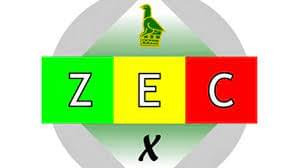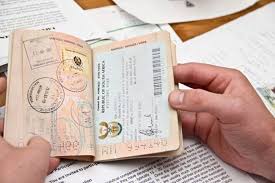HARARE – The European Union Election Observer Mission (EOM) to Zimbabwe’s August 2023 polls has reinforced its earlier position the Zimbabwe Electoral Commission (ZEC), judiciary, and the spooky Forever Associates of Zimbabwe (FAZ) combined to discredit Zimbabwe’s controversial election which saw incumbent President Emmerson Mnangagwa August declared winner.
Presenting the mission’s final report on the poll, Fabio Massimo Castaldo, who headed of delegation, highlighted how these violated regional and international election standards.
Castaldo was speaking during a virtual press conference on Friday.
The report specifically pointed how the regulatory framework and new legal provisions impacted the fairness, credibility, and freedom of the plebiscite.
The procedures during voting were largely followed, as noted by EU EOM observers, but some important processes, such as the public posting of polling station result protocols, were not consistently implemented, especially during the counting.
“Overall, results management was efficiently organised; however, certain reporting mechanisms lacked transparency.
“The judiciary played a key role in the process. All legal instruments regulating the election and all key phases of the process were challenged before the court.
“The acute lack of confidence expressed by many interlocutors in the judiciary raised concerns about the role of courts in settling electoral disputes and on public confidence in its rulings,” read the report in part.
The EU report also criticised recent laws that eroded separation of powers and limited civic and political freedoms.
It also highlighted several instances of hindrances to observer activities, including cumbersome accreditation procedures by ZEC and coordinated media campaigns against citizen and international observer groups.
Moreover, laws recently passed eroded the separation of powers and curtailed the rights of assembly, association, and expression, limiting the civic and political space.
“The regulatory framework is insufficient and lacks important procedural details. ZEC’s inconsistent publication of its regulations compromised principles of transparency, accessibility, and legal certainty,” the report added.
The mission said the adoption of the ‘patriotic provisions’ of the Criminal Code in July 2023, legislative work on the Private Voluntary Organisations (PVO) bill, and selective implementation of the Maintenance of Peace and Order Act (MPOA) closed space for the exercise of freedoms of association, assembly, and expression.
It also criticised undesired police actions that prevented civic monitoring of election results and intimidated civil society organisations conducting sample-based result projections.
One major issue raised in the report was the absence of publicly available data, disaggregated by polling stations, which hindered independent verification of election results.
“The ZEC chairperson announced the presidential results on 26 August, declaring Mr. Mnangagwa elected with 52.6 percent of the valid votes, followed by Mr. (Nelson) Chamisa with 44 percent.
“Despite requests from opposition and civil society and the practice in previous elections, ZEC did not publish election results per polling station.
“The lack of public access to disaggregated results, combined with police actions against CSOs conducting result projections, prevented stakeholders from verifying the final results and impacted the public acceptance of the electoral process and diminished ZEC’s accountability,” reads the report.
The report also highlighted a further deterioration in the human rights situation following the election, with crackdowns on civil society and targeted actions against human rights defenders and opposition figures.
Recommendations for the final EU (EOM) include; enhancing election organisation and management in Zimbabwe, maintaining ZEC and its staff independence, providing timely and thorough information to the public, and protecting the freedom to assemble.
The report also advocated the avoidance of unnecessary restrictions on observation operations and the preservation of the judiciary’s independence.
Additionally, ZEC was urged to publish electoral results in a timely manner, disaggregated by polling stations.










